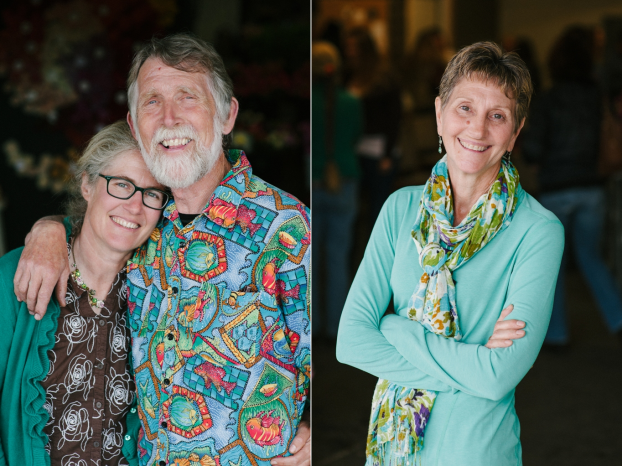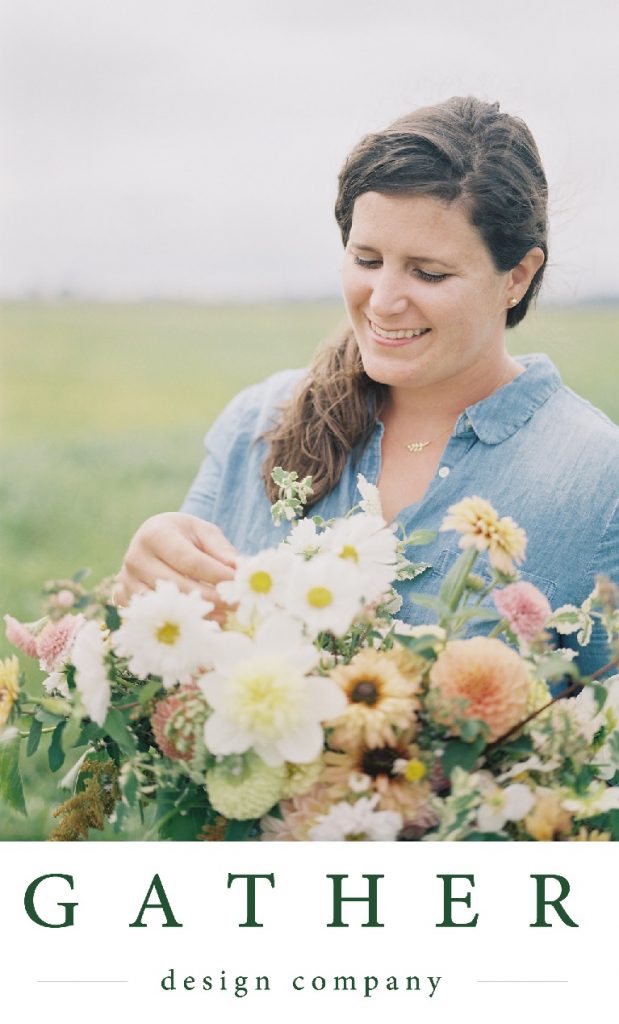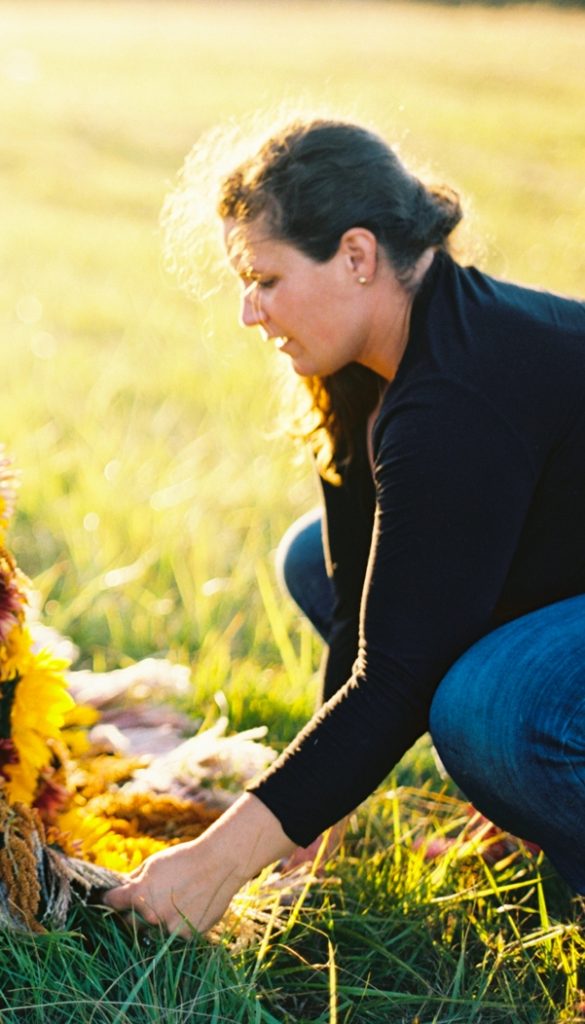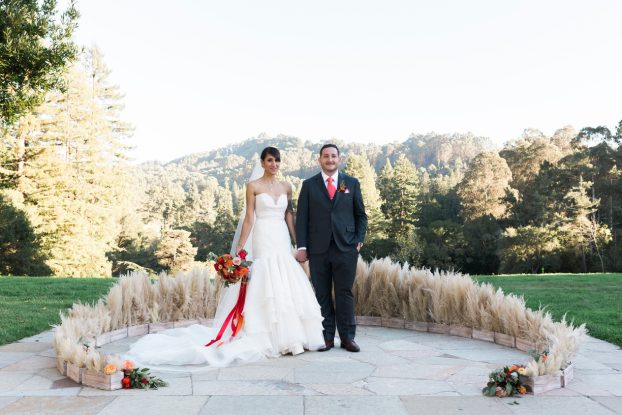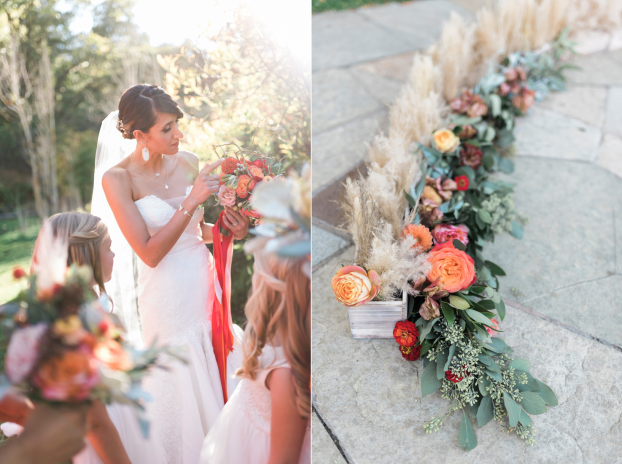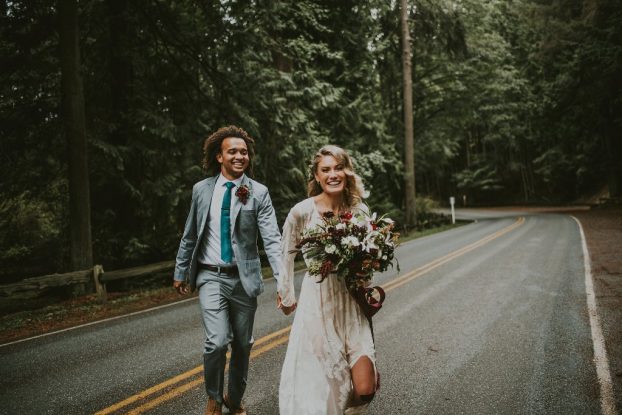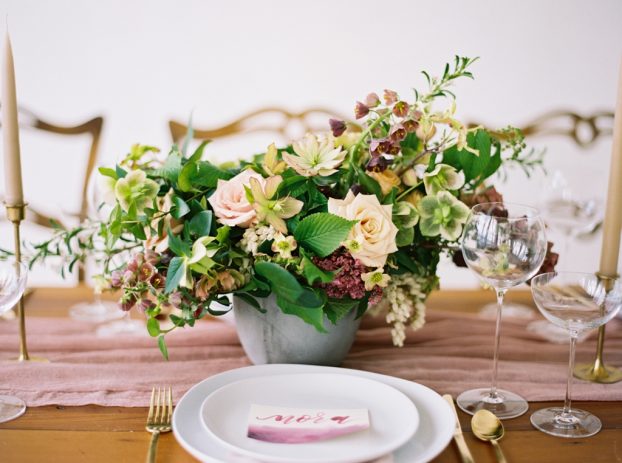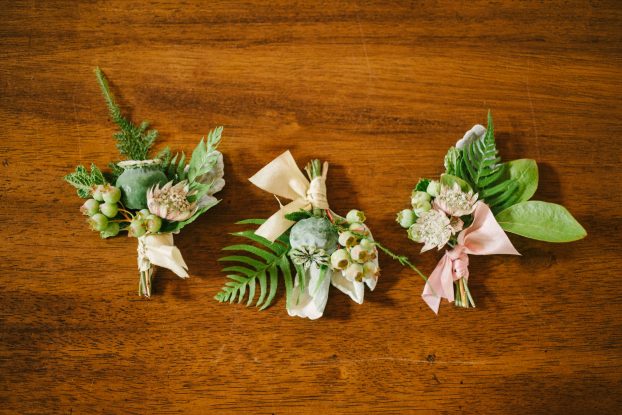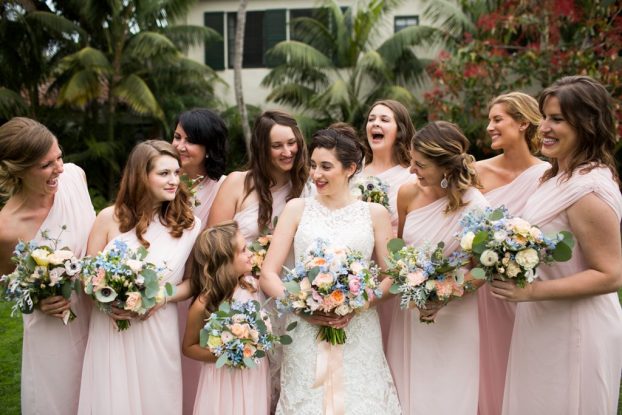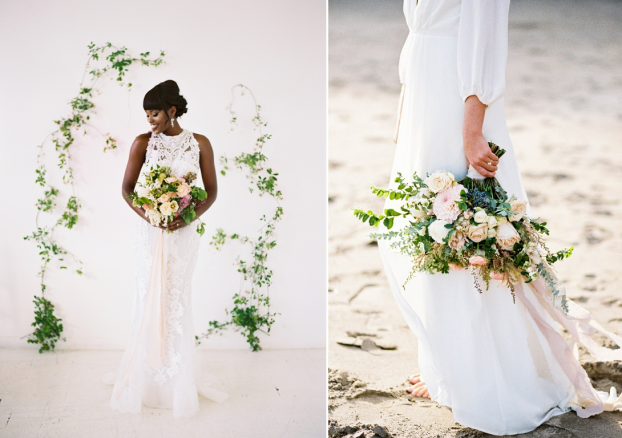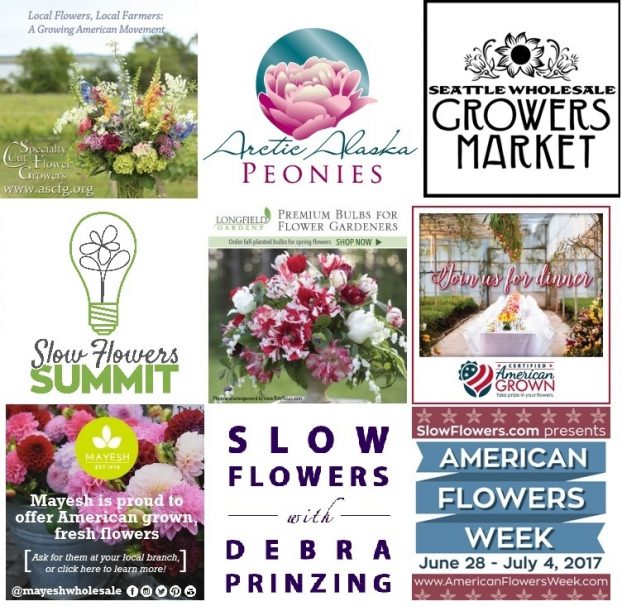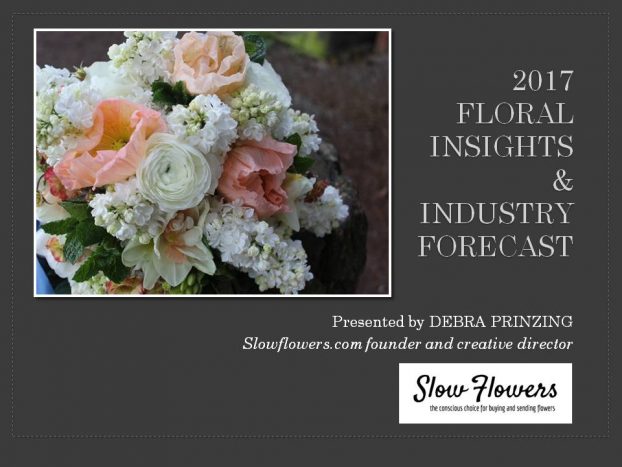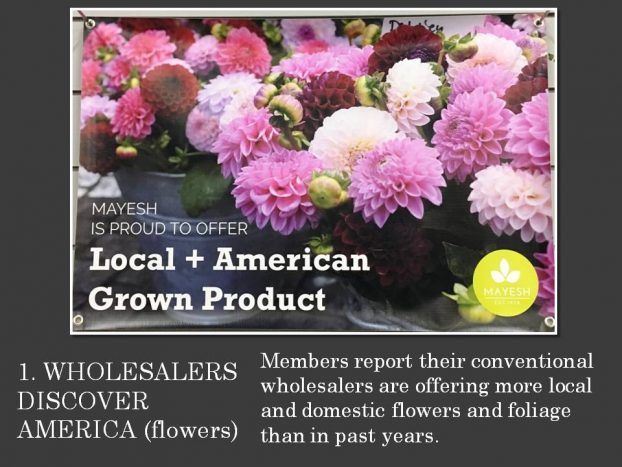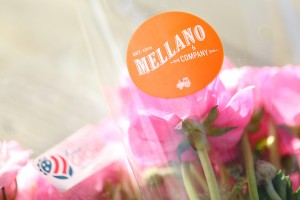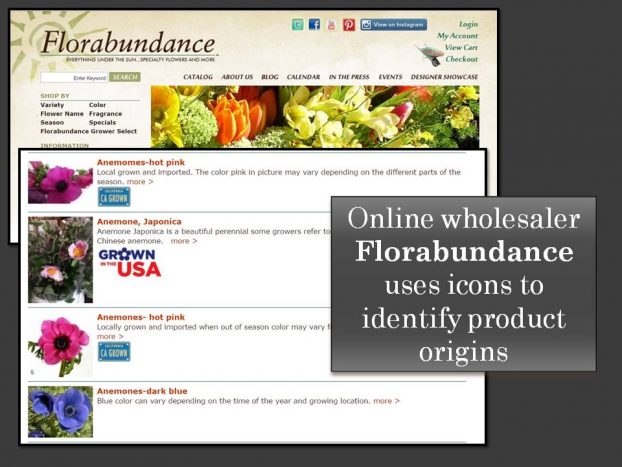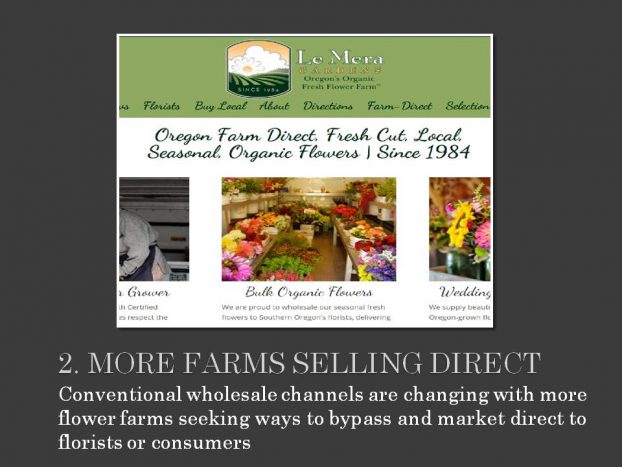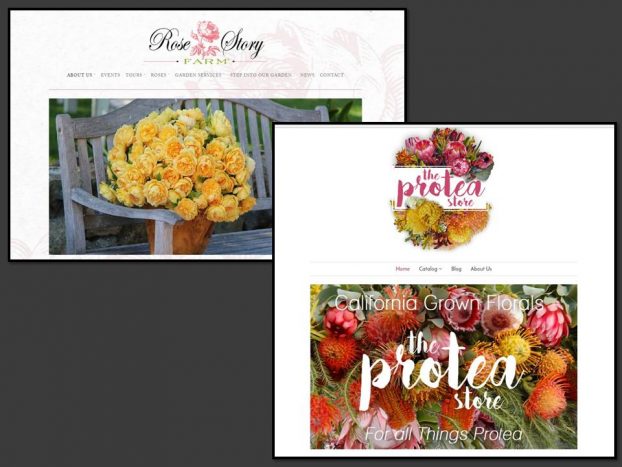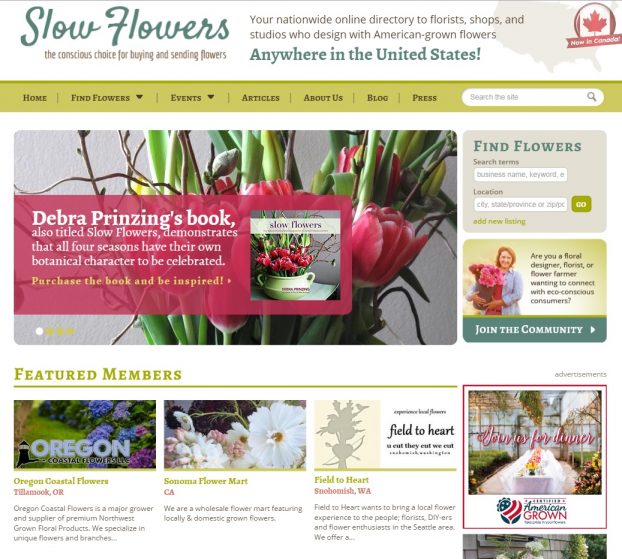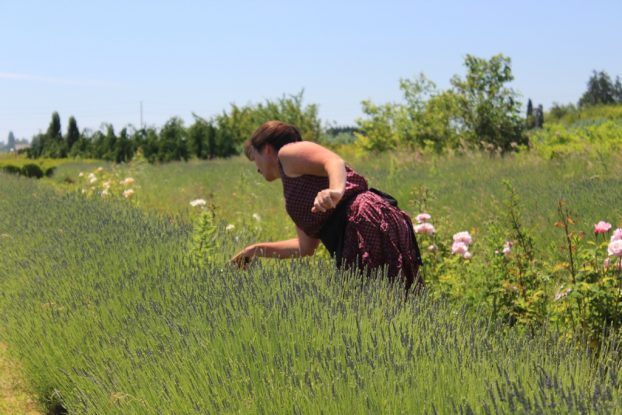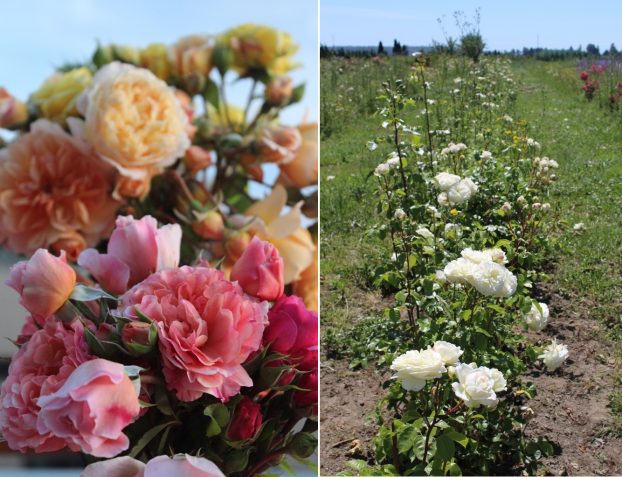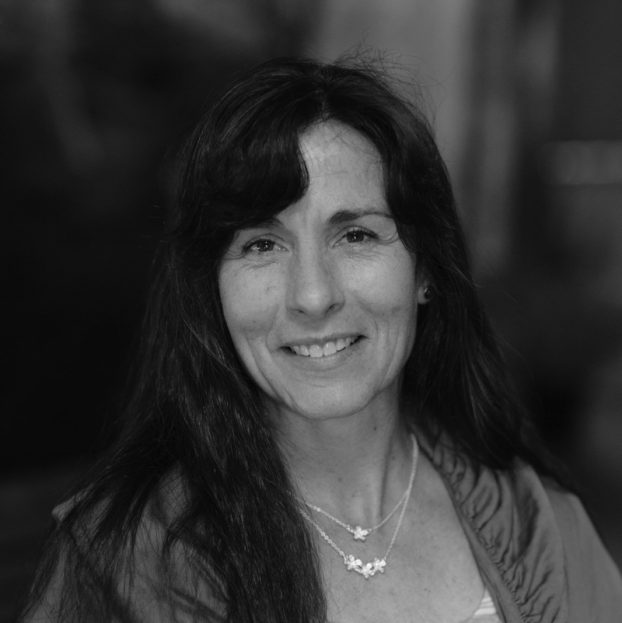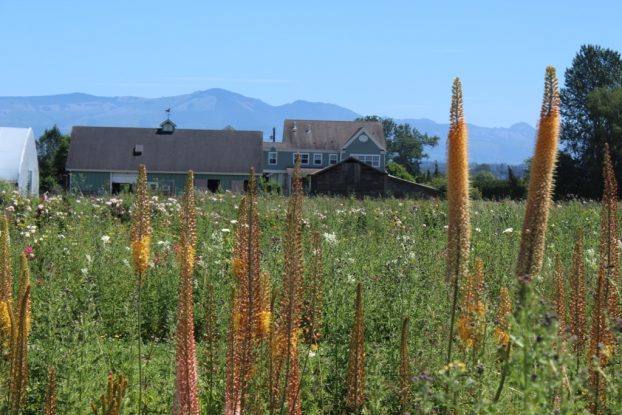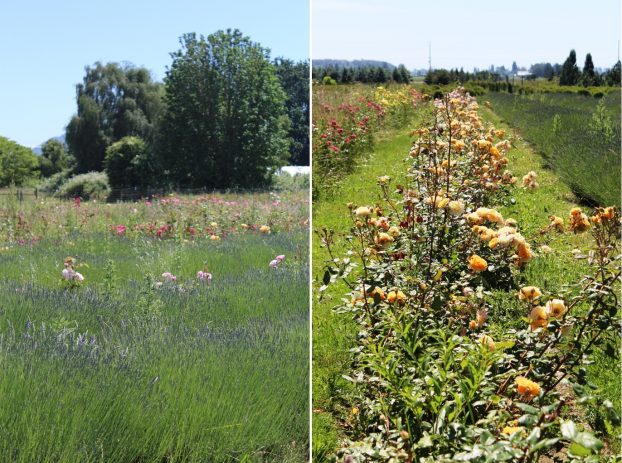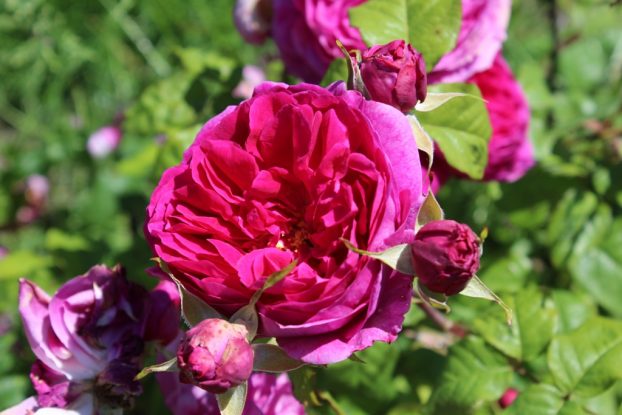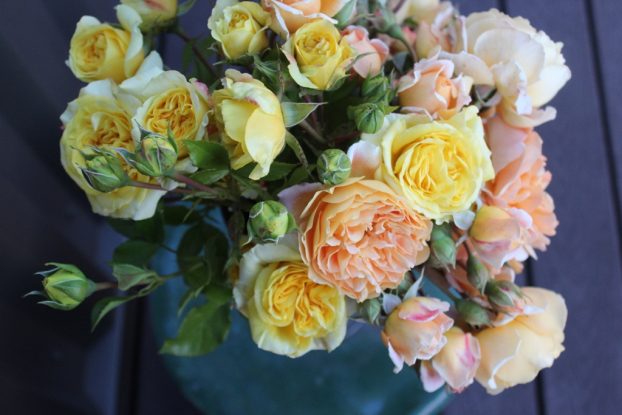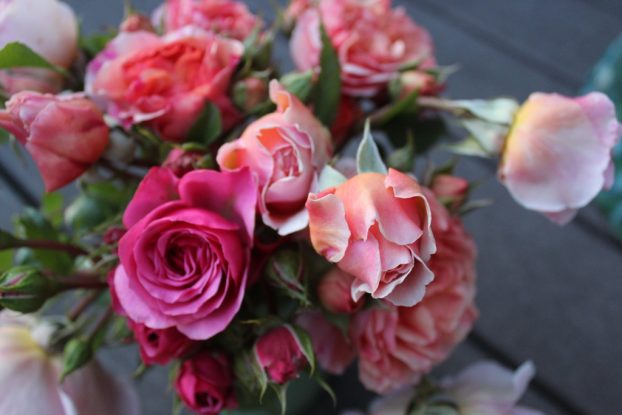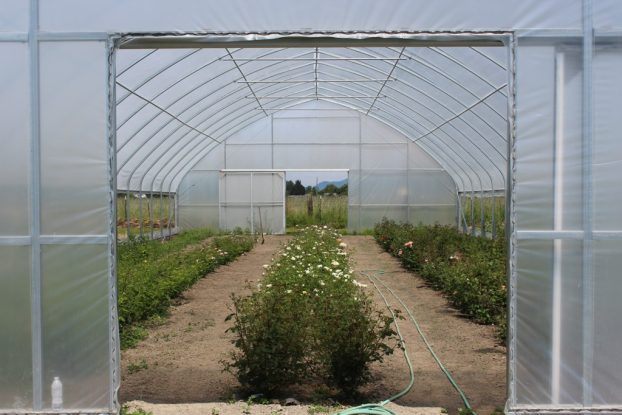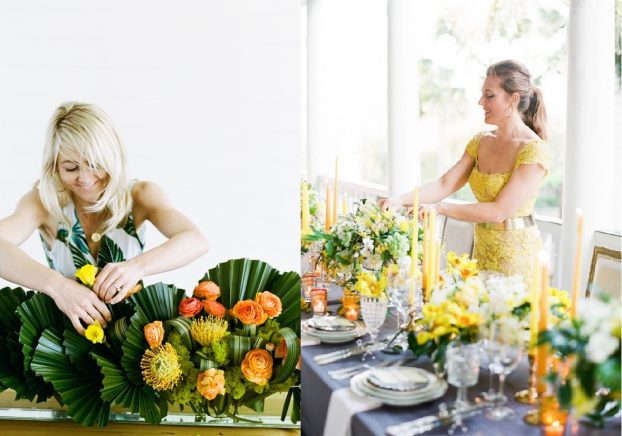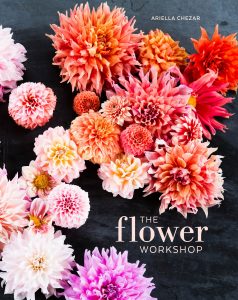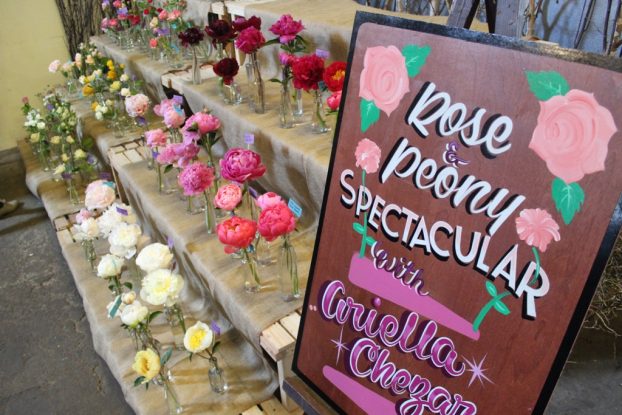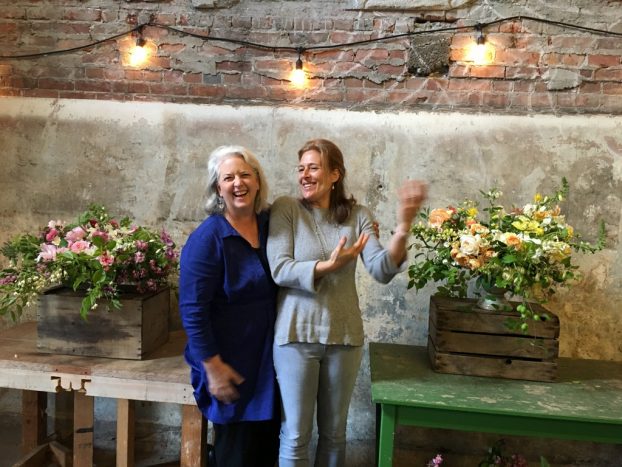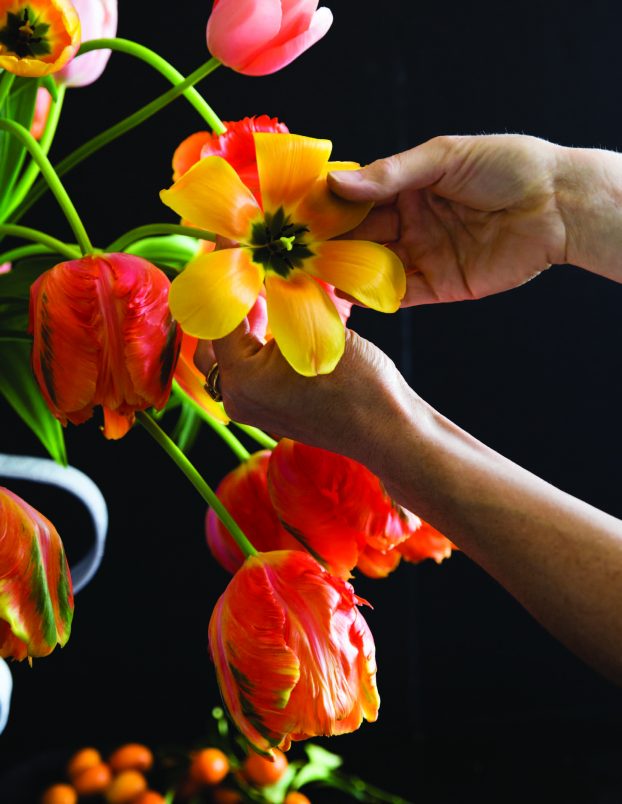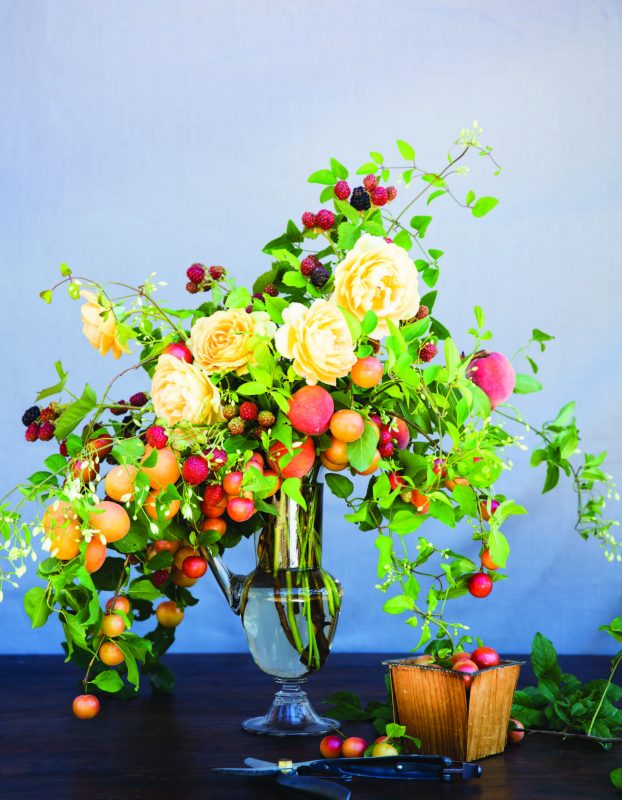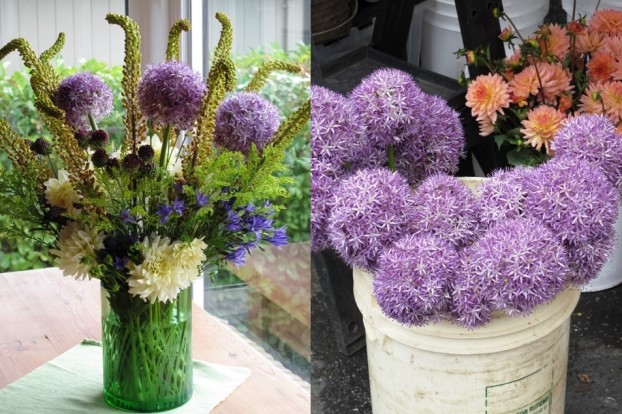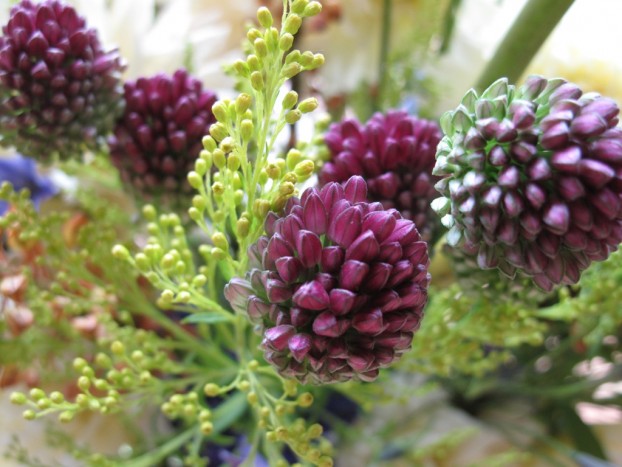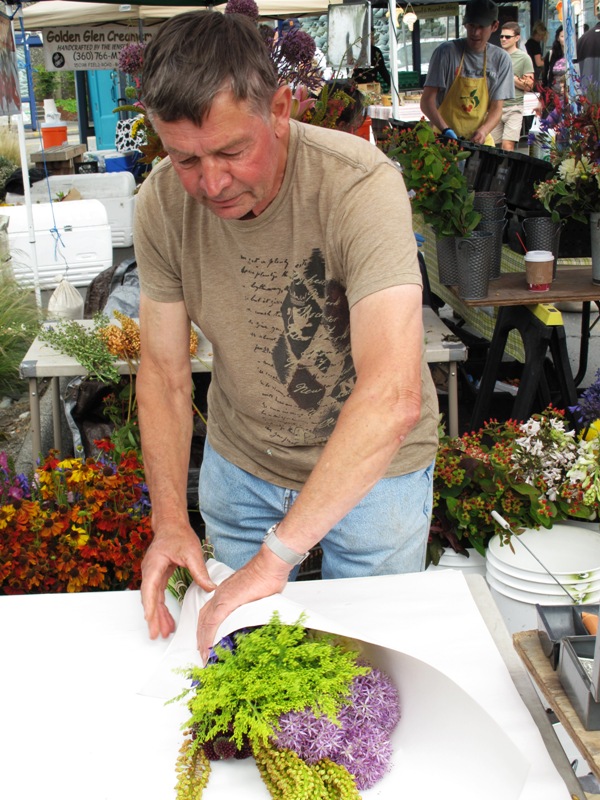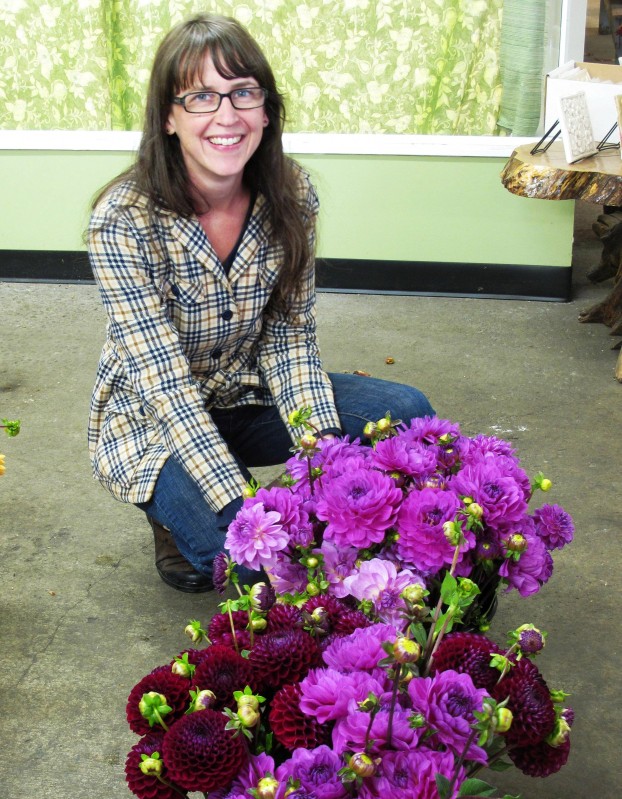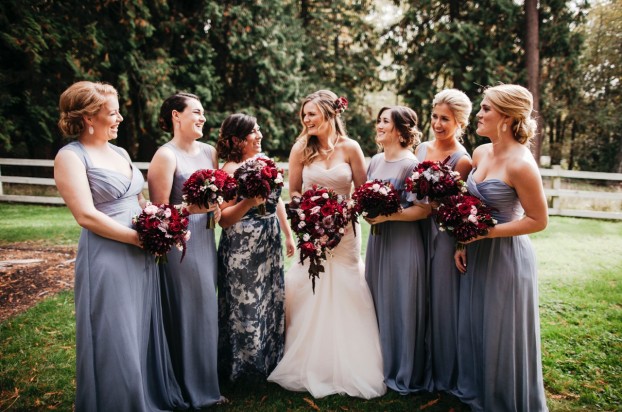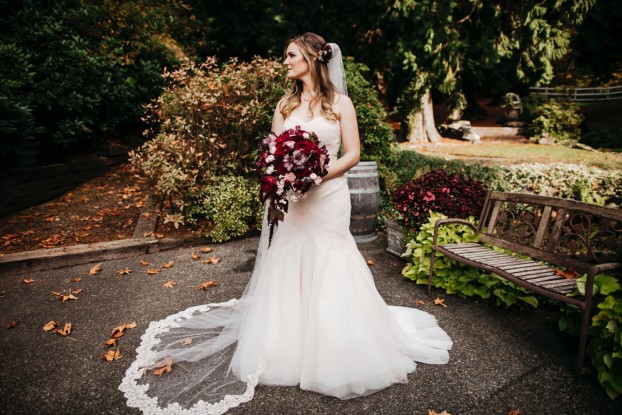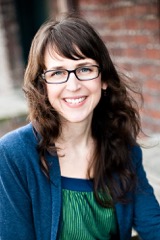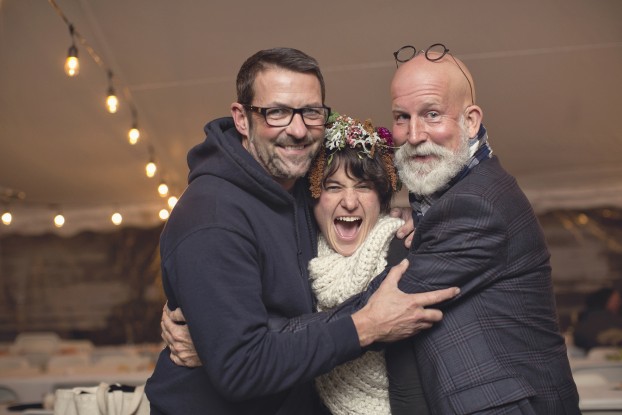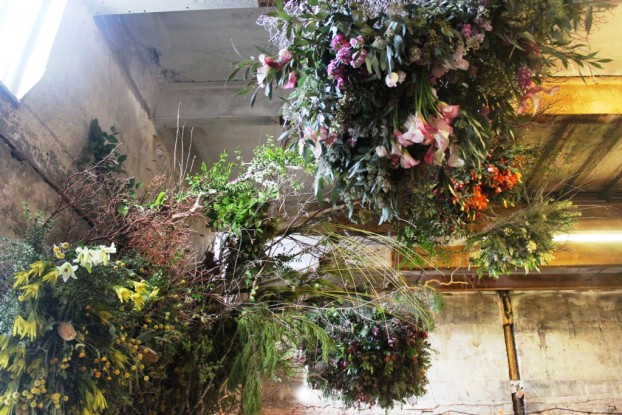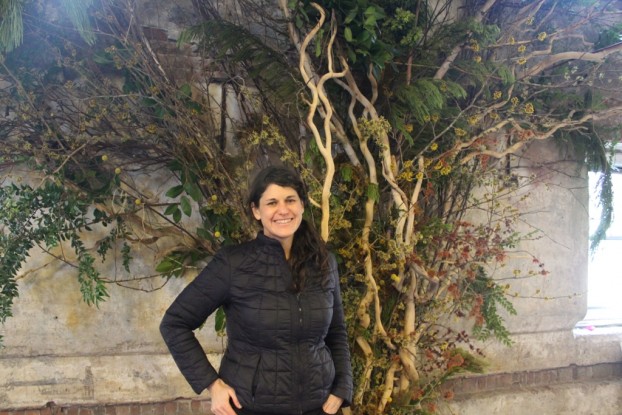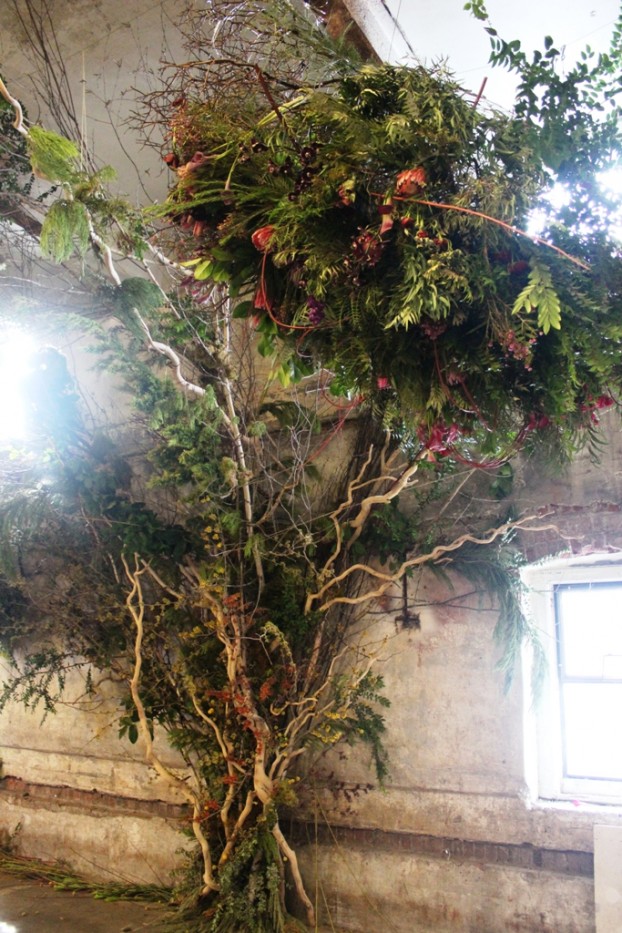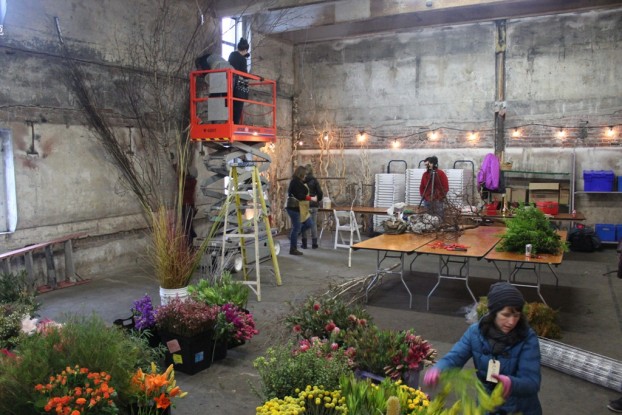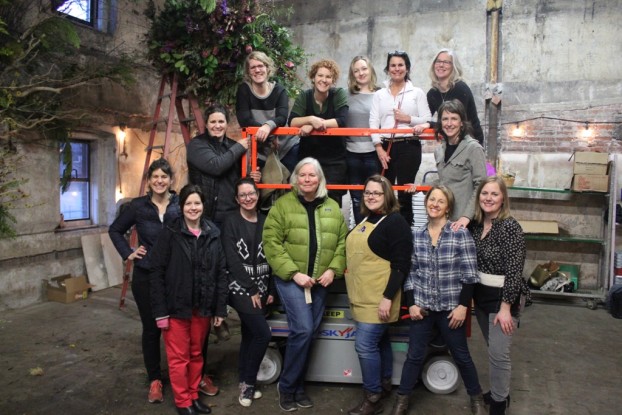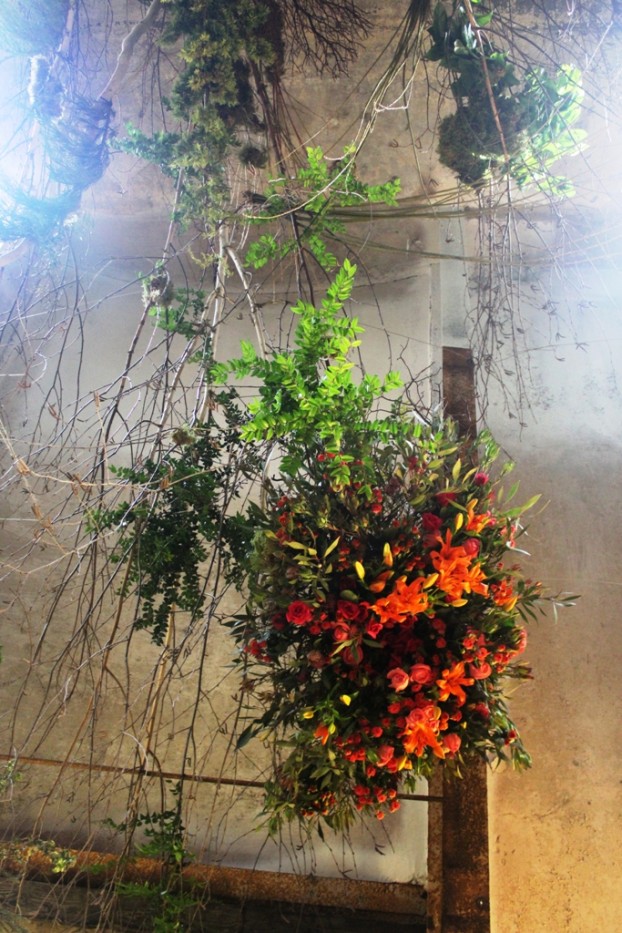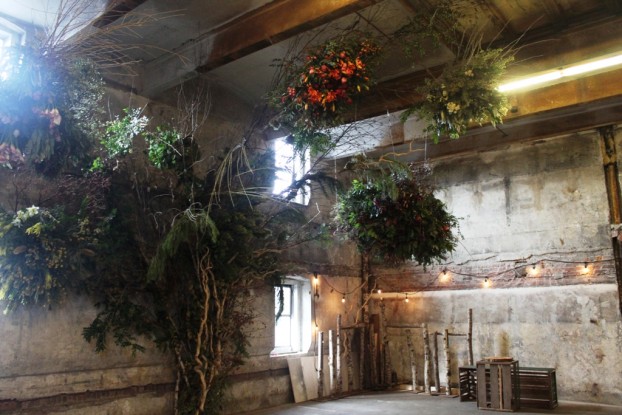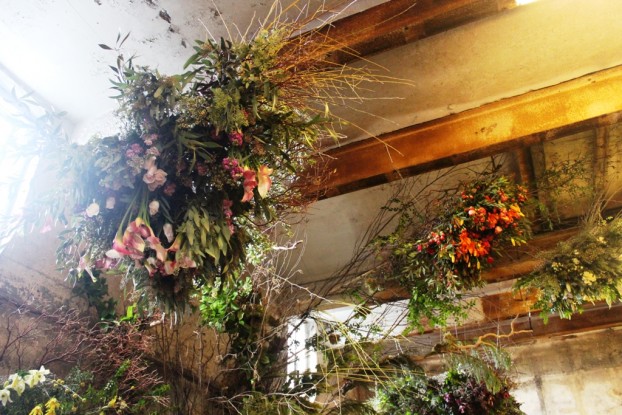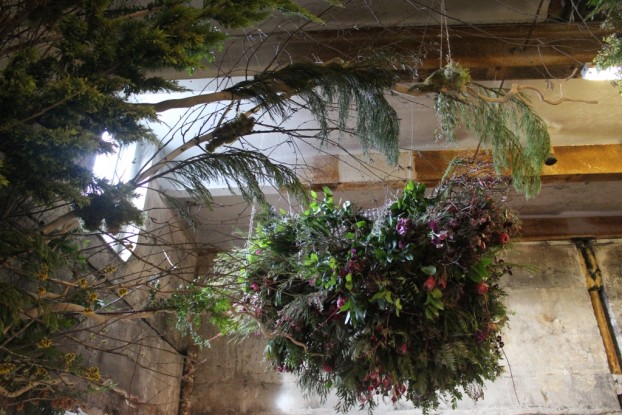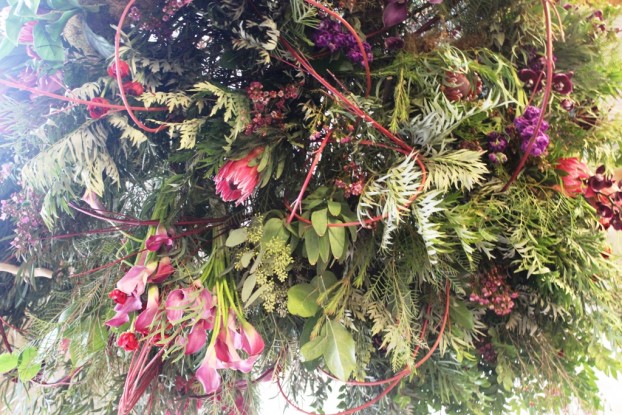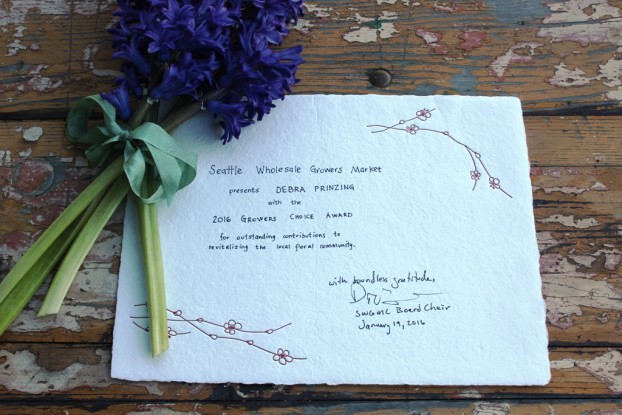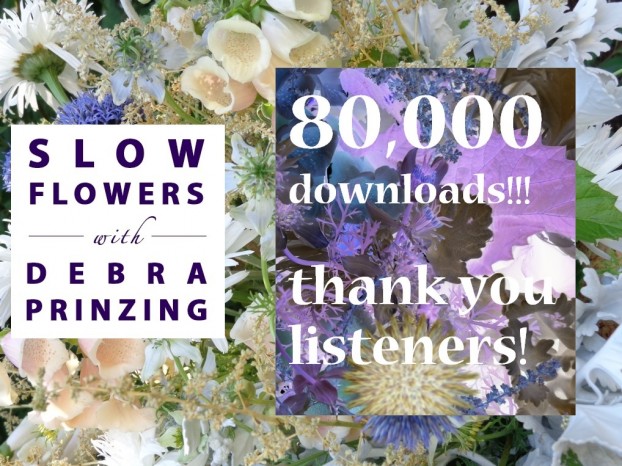Podcast: Play in new window | Download
Subscribe: Apple Podcasts | Podcast Index | RSS | More
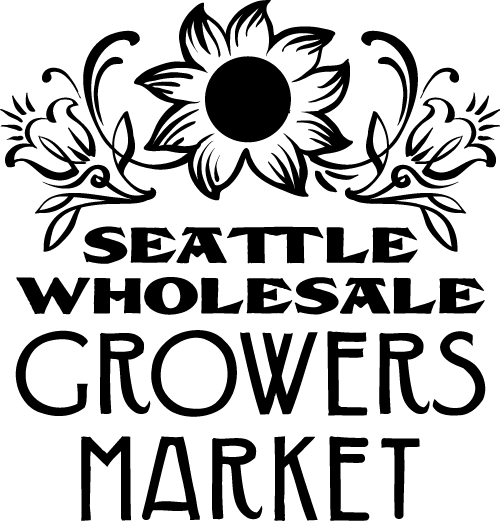 Six years ago this week, a band of intrepid Pacific Northwest flower farmers opened the doors at a cold, nearly empty warehouse in Seattle’s Georgetown District, and the Seattle Wholesale Growers Market was launched.
Six years ago this week, a band of intrepid Pacific Northwest flower farmers opened the doors at a cold, nearly empty warehouse in Seattle’s Georgetown District, and the Seattle Wholesale Growers Market was launched.
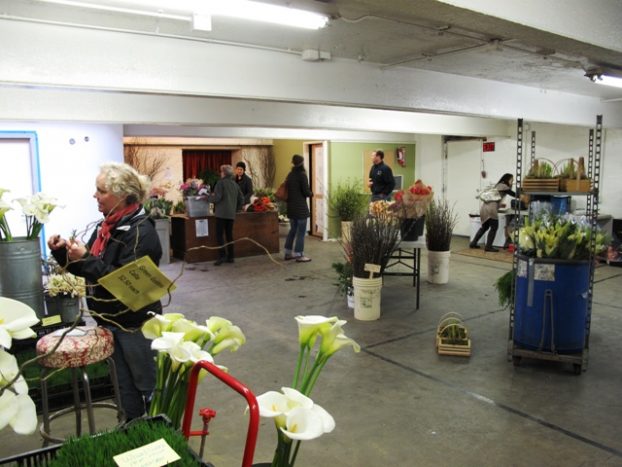
In the opening days of Seattle Wholesale Growers Market things were a little bare. Here is a photo I snapped on April 26, 2011
I have been along for the wild ride of this pioneering Market that has stimulated an entirely new way of connecting locally-grown flowers with buyers who value seasonal and sustainable botanicals grown with care and respect for the land.
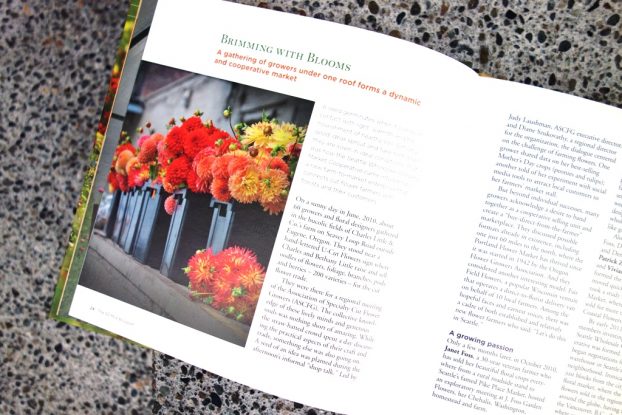
“Brimming with Blooms” documents the origins of the Seattle Wholesale Growers Market in The 50 Mile Bouquet.
Of that beginning, I wrote this in The 50 Mile Bouquet:
A seed germinates when it comes in contact with light, warmth and the nourishment of healthy soil. Similarly, good ideas sprout and take root when they are sown in ideal conditions. That was how the Seattle Wholesale Growers Market Cooperative came into being – a new farm-to-market enterprise that connects cut flower farmers with florists and their customers.
Illustrated by David Perry’s documentary-style photography, the chapter “Brimming with Blooms” tells the story of the origins of SWGMC in June 2010 and the ideas, people and circumstances that led to its actual debut by April 2011.
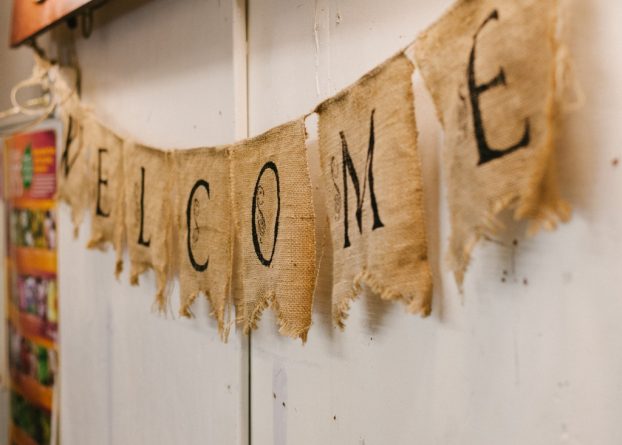 Today, the SWGMC is anything but an empty warehouse with just a few twigs and flowering branches.
Today, the SWGMC is anything but an empty warehouse with just a few twigs and flowering branches.
The Market has come into its own as a vibrant, viable economic engine for sustainable agriculture, for offering high quality local products and excellent customer service to the floral community in the greater Seattle area. Beyond this, the Market has continued to instigate, influence and inspire others who have studied its model, adapting lessons for their own regional hubs for selling flowers.
So in honor of the sixth anniversary of the Seattle Wholesale Growers Market, I’ve invited two past guests of the Slow Flowers Podcast to sit down with me and reflect on all that has transpired and all that the Market still aspires to achieve.
Please welcome Diane Szukovathy, co-owner with her husband Dennis Westphall of Jello Mold Farm, based in Mt. Vernon, WA; and Vivian Larsen of Everyday Flowers in Stanwood, WA. Together they have been part of the core group that founded the SWGMC and they serve as co-chairs of the Market board.
Follow and find Seattle Wholesale Growers Market at these social places:
The Slow Flowers Podcast has been downloaded more than 182,000 times by listeners like you. THANK YOU to each one of you for downloading, listening, commenting and sharing. It means so much.
If you value the content you receive each week, I invite you to show your thanks and support the Slow Flowers Podcast with a donation — the button can be found on our home page in the right column. Your contributions will help make it possible to transcribe future episodes of the Podcast.
Thank you to family of sponsors:
And thank you to our lead sponsor for 2017: Certified American Grown Flowers. The Certified American-Grown program and label provide a guarantee for designers and consumers on the source of their flowers. Take pride in your flowers and buy with confidence, ask for Certified American Grown Flowers. To learn more visit americangrownflowers.org.
Arctic Alaska Peonies, a cooperative of 50 family farms in the heart of Alaska providing high quality, American Grown peony flowers during the months of July and August. Visit them today at arcticalaskapeonies.com
Seattle Wholesale Growers Market, a farmer-owned cooperative committed to providing the very best the Pacific Northwest has to offer in cut flowers, foliage and plants. The Growers Market’s mission is to foster a vibrant marketplace that sustains local flower farms and provides top-quality products and service to the local floral industry. Find them at seattlewholesalegrowersmarket.com
Longfield Gardens provides home gardeners with high quality flower bulbs and perennials. Their online store offers plants for every region and every season, from tulips and daffodils to dahlias, caladiums and amaryllis. Visit them at lfgardens.com.
Association of Specialty Cut Flower Growers. Formed in 1988, ASCFG was created to educate, unite, and support commercial cut flower growers. It mission is to help growers produce high-quality floral material, and to foster and promote the local availability of that product. Learn more at ascfg.org.
Syndicate Sales is an American manufacturer of vases and accessories for the professional florist. Look for the American Flag Icon to find Syndicate’s USA-made products and join the Syndicate Stars loyalty program at syndicatesales.com.
Johnny’s Selected Seeds, an employee-owned company that brings the best flower, herb and vegetable seeds — and supplies to farms large and small. Check them out at johnnysseeds.com.
I’m Debra Prinzing, host and producer of the Slow Flowers Podcast. Next week, you’re invited to join me in putting more American grown flowers on the table, one vase at a time. And If you like what you hear, please consider logging onto Itunes and posting a listener review.
The content and opinions expressed here are either mine alone or those of my guests alone, independent of any podcast sponsor or other person, company or organization.
The Slow Flowers Podcast is engineered and edited by Andrew Brenlan. Learn more about his work at KineticTreeFitness.com.









